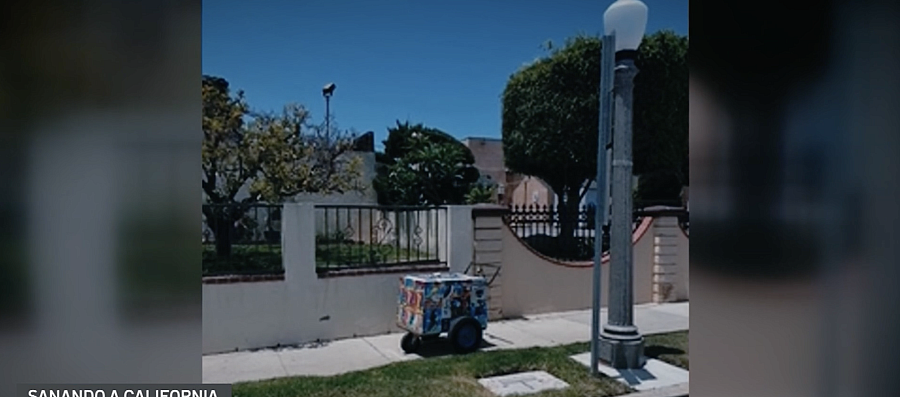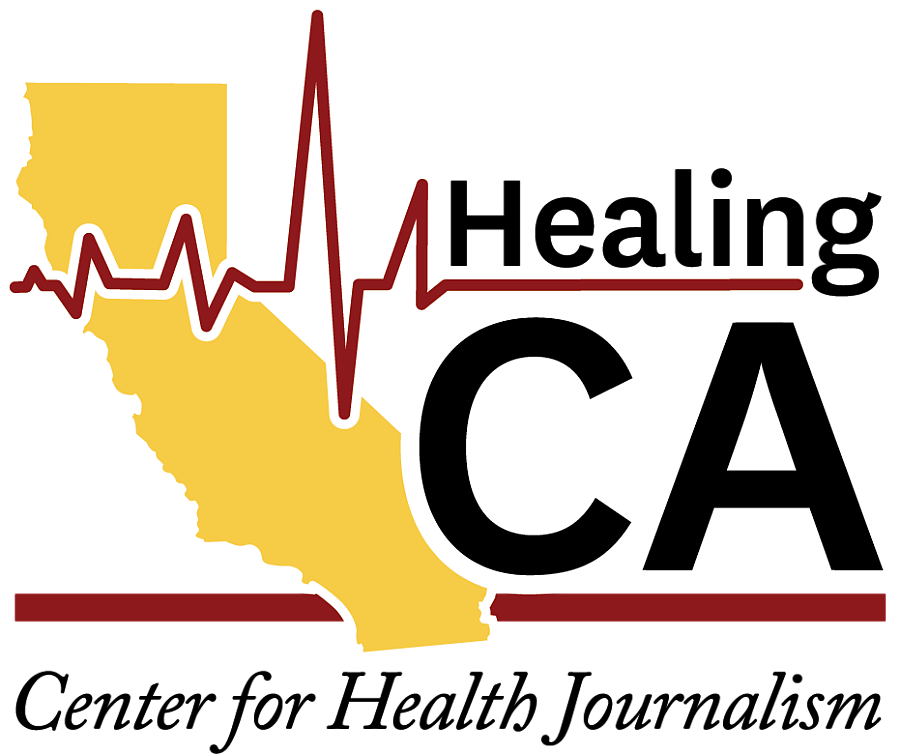Healthcare Clinic Reports Appointment Cancellations and No-Shows Amid Fear of ICE Raids
The story was co-published with Telemundo 52 Los Angeles as part of the 2025 Ethnic Media Collaborative, Healing California. This story is the second of a three-part series.

A guard locking the clinic door. Telemundo 52 Los Angeles
Introduction:
According to activists, experts, and community members we've spoken with in recent weeks, immigration operations are causing people to cancel their medical appointments — and the biggest concern for medical experts is that this could lead to serious consequences, even death.
A stream of water and soap won't be enough to wash away the fear in this car wash. Panic was perhaps the only witness … when agents took a paletero (steet vendor selling ice cream), leaving his work tools behind.

An abandoned ice cream vending cart. Telemundo 52 Los Angeles
And so, other vendors abandoned their vending stands too, some still with the meat on the grill.
In recent weeks, the reality of an uncertain future for thousands has resurfaced like that nightmare in which they are the main characters.
(From Dr. Edgar, 00:00:32)
The fear is immense. Many of our patients do not want to attend their appointments, after President Trump's administration rescinded a Biden-era policy in January 2025 that protected certain sensitive locations from immigration enforcement actions, including churches, schools, and hospitals.
The door to Dr. Chavez’s clinic is locked and under the watch of a guard.
(From Dr. Edgar, 00:07:11)
This will help us prevent raids without us realizing it and enable us to assist patients as much as possible so they feel comfortable waiting in our clinics without the fear of something happening to them.
Since the start of the fiscal year on October 1, 2024, until mid-June, ICE has arrested and detained more than 204,000 people, according to data collected by the CATO Institute, and 93% of those arrested had never been convicted of a violent crime.
Hispanic adults are 60% more likely to be diagnosed with diabetes than Anglo adults. (Source: U.S. Department of Health & Human Services).
(From Dr. Edgar, 00:02:14)
We have made a great effort to treat people with diabetes and high blood pressure. Now, these people say they won't come to the clinic anymore because there’s a potential they could be detained and taken away.
(From Dr. Edgar, 00:03:01)
They won’t pick up their medications; they will lose control, and unfortunately, they will end up in the emergency room — not the appropriate place for preventive care.
And silently… this problem could be exploited by fear…
(From Arturo/UCLA Professor, 00:03:16)
Anxiety, uncertainty, and fear among the immigrant population are increasing because the need for mental health services is growing.
(From Arturo, 00:04:02)
Yes, it has been very difficult, because, since the first federal administration under President Trump, public policies like the ‘public charge’ rule were introduced, which generated significant fear among immigrants about using health services. A "public charge" is an individual who is likely to become primarily dependent on the government for subsistence, either through cash assistance or long-term institutionalization at government expense. The "public charge rule" is an immigration test used to determine if someone applying for a green card or visa is likely to become primarily dependent on the government for support in the future.
And now… information about undocumented people with Medi-Cal here in California might already be in the hands of immigration authorities.
According to a June 14 report from the Associated Press, "President Donald Trump’s administration this week provided deportation officials with personal data — including the immigration status — on millions of Medicaid enrollees, a move that could make it easier to locate people as part of his sweeping immigration crackdown.”The Trump administration reportedly provided Medicaid beneficiary information to the Department of Homeland Security (DHS), which is in charge of ICE. Governor Gavin Newsom condemned the sharing of this data.
(From Arturo, 00:04:55)
This has validated many of the fears the population had about enrolling in Medi-Cal programs.
Federal authorities neither confirmed why this data was shared nor how it would be used…
(From Dr. Edgar, 00:01:41)
We were the ones who told these people, enroll in Medi-Cal programs, nothing will happen to you; we will help you…
(From Dr. Edgar, 00:01:52)
I know that people understand it’s not our fault. We did not give these names to anyone; it was the government.
Unfortunately, this diminishes trust.
California Democratic Senators Adam Schiff and Alex Padilla demanded that the federal government stop sharing personal Medi-Cal enrollment data with immigration authorities. The senators have requested details, legal justification, and the destruction of any shared data to prevent misuse.
(From Arturo, 00:09:35)
This adds to what we know as ‘chilling effects,’ which aim to create fear and reduce health service utilization among the immigrant population because this impacts not only undocumented immigrants but also their families — many of whom are U.S. born or documented.
(From Dr. Edgar, 00:05:16)
We must not let this fear affect our health, because in the long term, it will become a very serious problem, possibly ending here…
(From Arturo, 00:05:19)
And I imagine many people will wait until the situation is truly critical to go to a healthcare provider for treatment.
Or worse…

(From Arturo, 00:01:53)
resulting in possible calamities if diseases are not identified at an early stage when something can be done, and then by the time they are identified, it's at a very late stage, when treatment is much less effective.
This project was supported by the USC Annenberg Center for Health Journalism, and is part of “Healing California”, a yearlong reporting Ethnic Media Collaborative venture with print, online and broadcast outlets across California.

